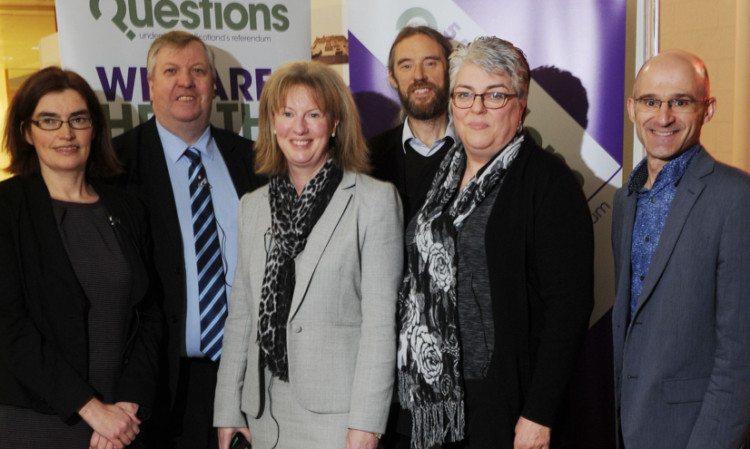The latest in the series of Dundee University debates Five Million Questions focused on the future of welfare in an independent Scotland.
More than 200 people turned out at the Steps Theatre in the city’s Central Library on Monday evening to take part in a Question Time-style debate between a panel of welfare experts.
Shona Robison, SNP MSP for Dundee City East and minister for public health and sport, shared the stage with Michael McMahon, Labour MSP and convener of the Scottish Parliament’s Welfare Reform Committee, which looks at how UK reforms are being implemented in Scotland.
They were joined by John Dickie, director of the Child Poverty Action Group, Mary Kinninmonth, director of Citizens Advice Bureau (CAB) Dundee, and Dr Nicola McEwen, senior lecturer in politics at Edinburgh University.
The debate was chaired by writer and former journalist Susan Dalgety, who posed four main questions to the panelists and invited audience participation around the topic of what will, and should, become of welfare provision in Scotland in the event of a yes or a no vote in the independence referendum?
While neither CAB nor Child Poverty Action Group would take an official stance about the referendum, both directors said they were increasingly concerned about the impact of UK welfare reforms on the most vulnerable people in society.
Another issue raised was about changing the language surrounding the welfare system to dispel the myths of workers versus scroungers and immigrants coming to the country purely to claim benefits.
Dr McEwen said although people are looking for what an independent Scotland might be like, from her experience a lot of issues would be settled by post-vote negotiations between governments.
The final question was on the so-called bedroom tax and suggestions were invited as to how it could be abolished in Scotland.
Ms Robison said it would go only with independence. However, Mr McMahon said a change of Westminster Government was the only route.
A vote showed the majority of audience members would be prepared to pay more in tax for a better social security system.
An introduction to the debate was given by Dundee University geography professor Edward Hall, who came up with the idea for the Five Million Questions debates.
University vice-principal Professor Chris Whatley gave a vote of thanks.
